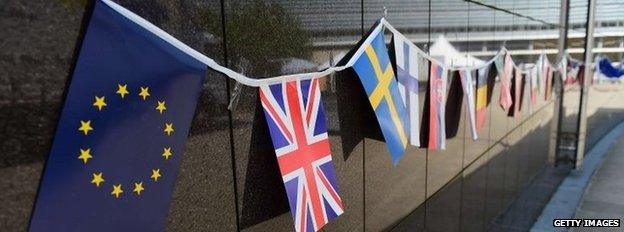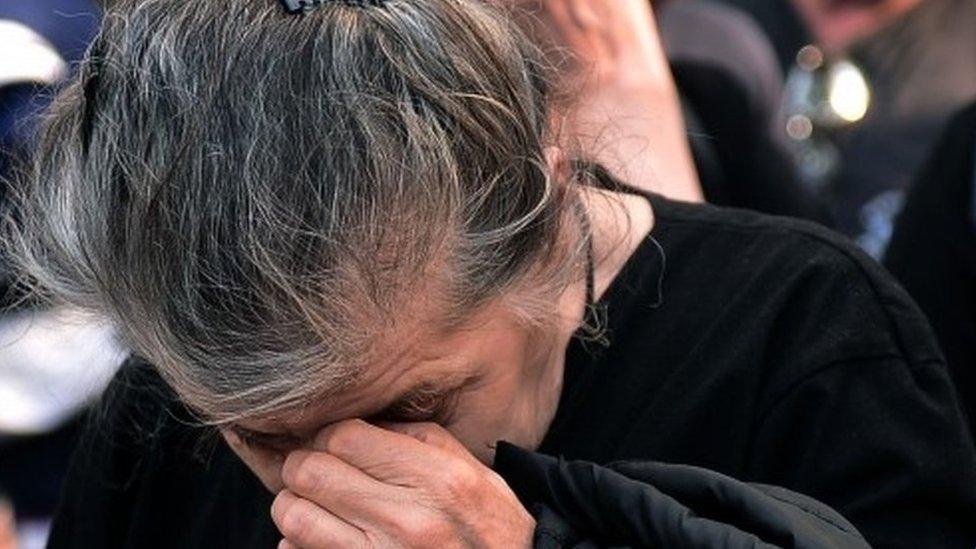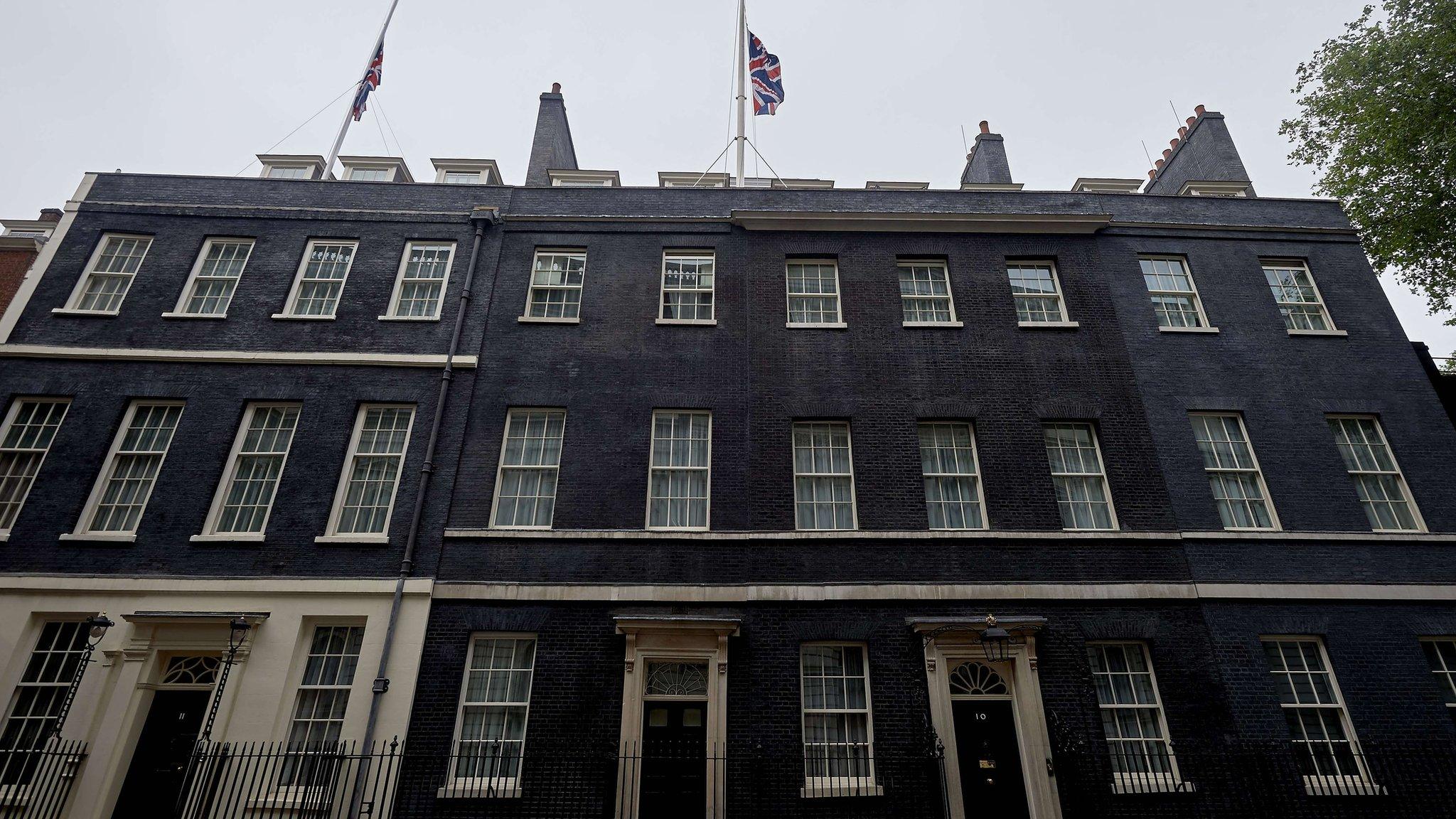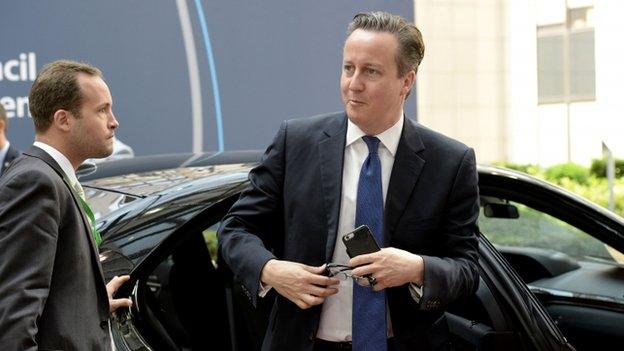David Cameron says Britons won't accept 'rigid' EU
- Published
David Cameron: ''We must be prepared for every eventuality''
British voters will not accept a "rigid" EU that cannot handle the Greek crisis and the UK's demands for reform, David Cameron said.
The PM said the union "would not work" if it could not show "flexibility".
Mr Cameron was speaking after formally launching his bid to renegotiate the UK's membership ahead of the in/out membership promised by 2017.
He also said Greece would be likely to leave the euro if it rejects its bailout terms in a referendum.
Greek banks have been closed ahead of the 5 July vote, which was called after talks between the government and international creditors failed to find agreement.
Speaking on BBC Radio 4's Today programme, Mr Cameron said Britain's interests would be best served by an agreement between the Greek government and the eurozone.
"If they vote no, I find it hard to see how that's consistent with staying in the euro because there would be a very significant default and a very significant problem," he said.
Mr Cameron said the EU had to be flexible enough to work for countries inside and outside the eurozone.
'Tenacity'
"If it can't show that flexibility it won't work as an organisation and I believe the British people will see that," he said, adding: "This needs to have the flexibility of a network not the rigidity of a bloc."
Asked about raising his demands for reform during a summit dominated by the Greek and Mediterranean crises, the PM said there had been "very long" discussions about those two issues.
"In the middle of that there was a brief discussion about the British situation," which "got a very good reception", he said.
The PM said there were many negotiations to come - "but every journey starts with a single step, as they say".
He later addressed MPs in the Commons, saying a successful negotiation would require "tenacity".
But Labour's acting leader Harriet Harman said his goals were unclear both to other EU leaders and to the British people.
She asked him to confirm there was "no prospect" of changing the EU's treaties before the referendum takes place.
The PM is believed to accept it may not be possible to achieve treaty change before the vote takes place.
Responding to Ms Harman, he said what mattered was "making sure there's agreement with the substance of the changes that we seek - which of course will involve treaty change".

EU referendum in focus

David Cameron is starting renegotiation of the terms of Britain's EU membership ahead of a referendum. Here is some further reading on what it all means:
Q&A: The UK's planned EU referendum
UK and the EU: Better off out or in?

- Published29 June 2015

- Published29 June 2015

- Published26 June 2015

- Published25 June 2015